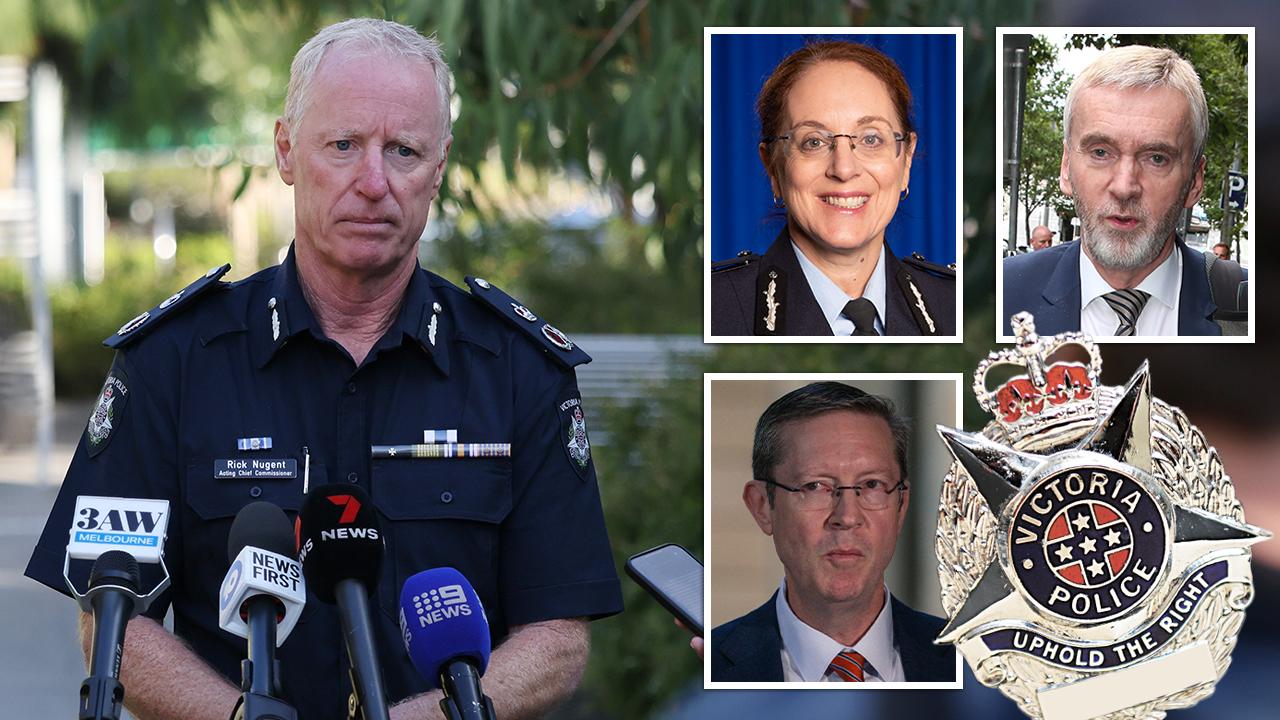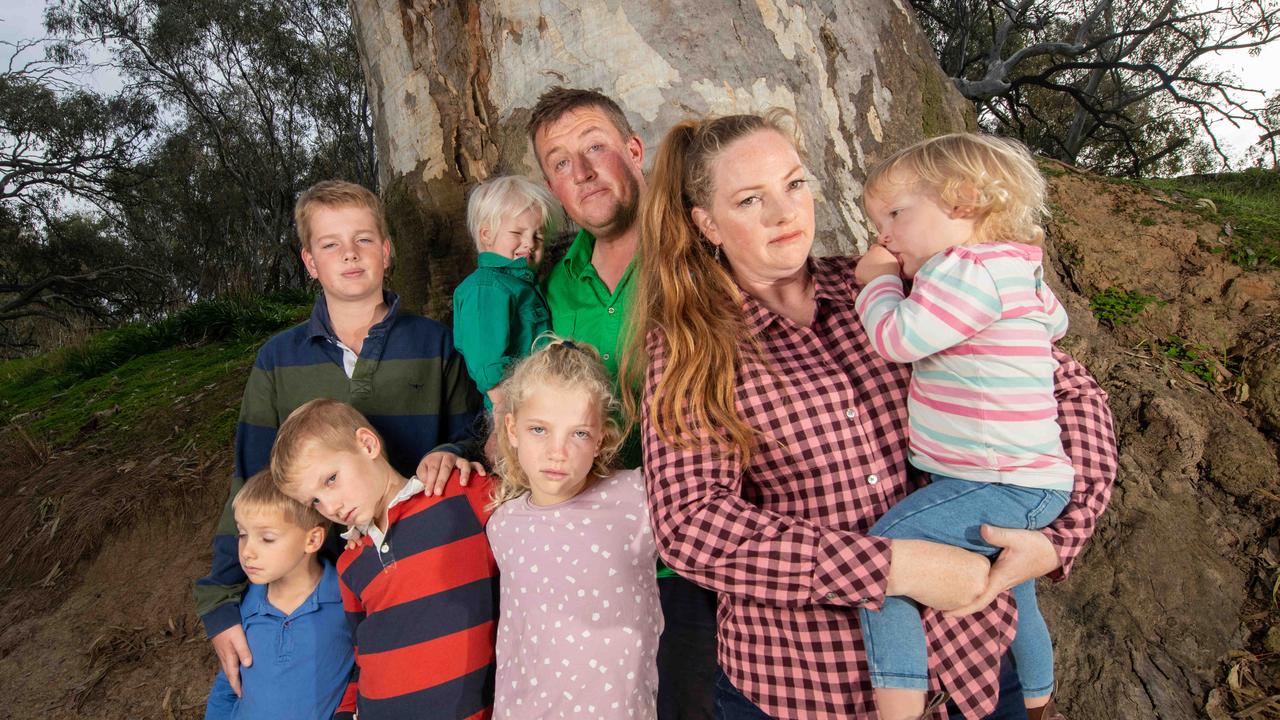Family violence order breached every 20 mins in Victoria
An intervention order is breached every 20 minutes in Victoria, with one victim-survivor slamming regional towns for sweeping gender-based violence “under the rug”. Here’s where the most breaches are occurring.

News
Don't miss out on the headlines from News. Followed categories will be added to My News.
A family violence or intervention order is breached every 20 minutes in Victoria, with a prominent domestic abuse reform advocate slamming regional towns for sweeping gender-based violence “under the rug”.
Across the state, the number of recorded breaches of family violence and intervention orders jumped five per cent from 26,925 in 2022 to 28,299 in 2023.
The highest number of family violence order breaches were recorded in Mildura, in Victoria’s northwest, last year. There were 438 breaches recorded last year – a 10 per cent increase from 2022. The region also recorded an additional 20 intervention order breaches last year.
Frankston recorded the second number of breaches in the state, With 413 family violence order breaches, the numbers soared by 38 per cent from 2022 when 298 offences were recorded.
This was followed by Shepparton (388), Morwell (321), Dandenong (271), Werribee (271) and Pakenham (267).
Other towns and suburbs that recorded more than 200 offences included Traralgon, Warrnambool, Reservoir, Corio and Cranbourne.
Domestic abuse survivor Kim O’Reilly, who is from Mildura, said people in regional areas didn’t like to call out problematic behaviour, or “ruffle anyone’s feathers”.
“We don’t talk about it in these areas, it was so unknown to me – until it happened to me,” she said.
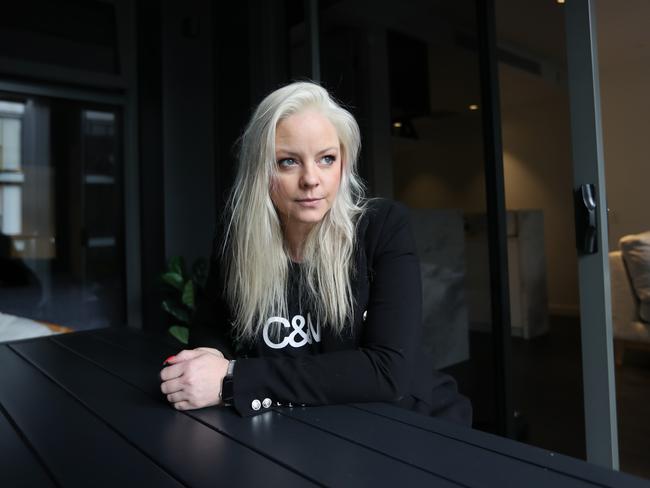
“In cities with higher populated areas, there’s so many people doing things about it. In smaller towns, you just don’t hear about it, it’s not a conversation.
“They don’t look at it as an issue that’s taking women’s lives, they see it as it’s not their business.”
In the early hours of January 17, 2019, Ms O’Reilly suffered an hour-long assault at the hands of country footy player Jake Frecker so loud it woke the neighbours, who called triple-0.
The man who almost killed her was released in January last year on the very same day he attacked her four years ago.
Frecker, who pleaded guilty to assault, repeatedly punched her in the face, eye and jaw, breaking her eye socket and cracking several of her teeth in a fit of rage sparked by a text message sent to Ms O’Reilly by an earlier ex-partner who she shares a business with.
Frecker broke his intervention order while on bail in 2019 and was subsequently denied an appeal, leaving Ms O’Reilly stunned at his early release.
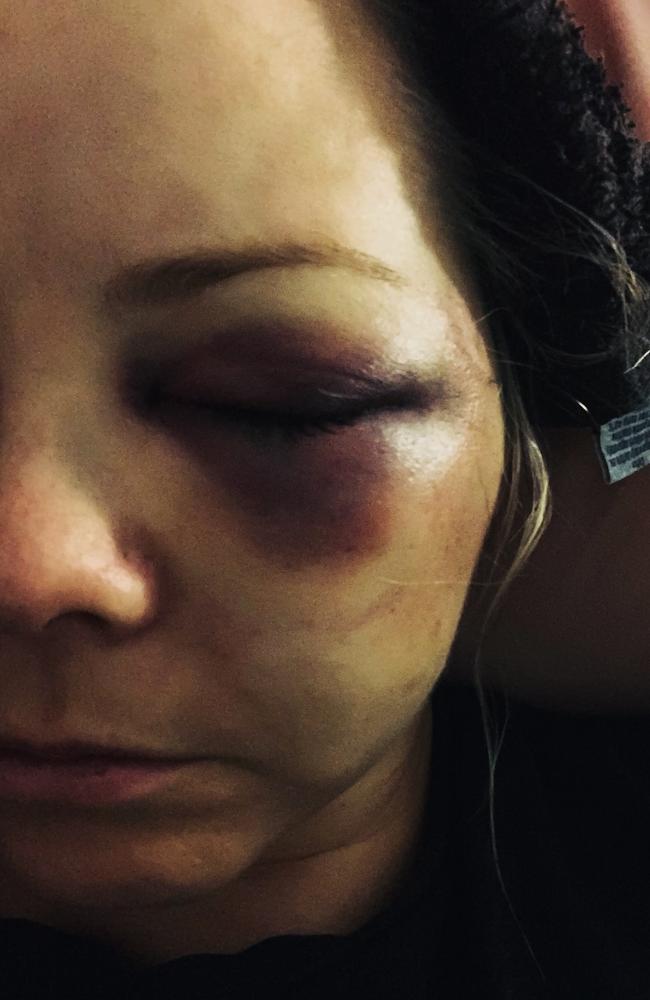
“In a smaller town, it’s so much easier to get to the person. In Mildura it takes seven minutes to drive from one side to the other, it’s terrifying,” Ms O’Reilly said.
“An officer told me that men who abuse their wives would bring them out to regional Victoria because it’s secluded. If they would get in trouble, they would just move to a smaller town, and then a smaller town.
“Some of these women he would go to check on, would disappear, they’d been taken further away from communities so they can’t get help. It’s just horrific.”
Ms O’Reilly said community organisations in regional areas, like sporting clubs, could be “tight knit and backwards” in how they approached issues like domestic violence.
“Status is everything in a small town. It’s not what you know, it’s who you know. If someone’s the president of a football club, they’re going to be bowed down to, before they are called out for their aggressive behaviour,” she said.
“Education needs to be there for kids – teenagers are growing up and living their life not knowing any difference, not having any support to feel like they can call it out.
“Places that are more secluded don’t have the resources, funding or education that’s needed.”

It comes after Family Violence Command Assistant Commissioner Lauren Callaway said last week officers needed more powers to crack down on family violence and hold male perpetrators to account.
Assistant Commissioner Callaway said tougher laws have been discussed internally, including the creation of an offender register and a scheme to track high-risk perpetrators through ankle bracelets.
In Victoria police arrest a perpetrator every 18 minutes for family violence and attend more than 94,000 family violence incidents a year, or roughly one every six minutes.
A Victoria Police spokesperson said the vast majority of breaches were committed using technology, with offenders using text messages or social media to target victims.
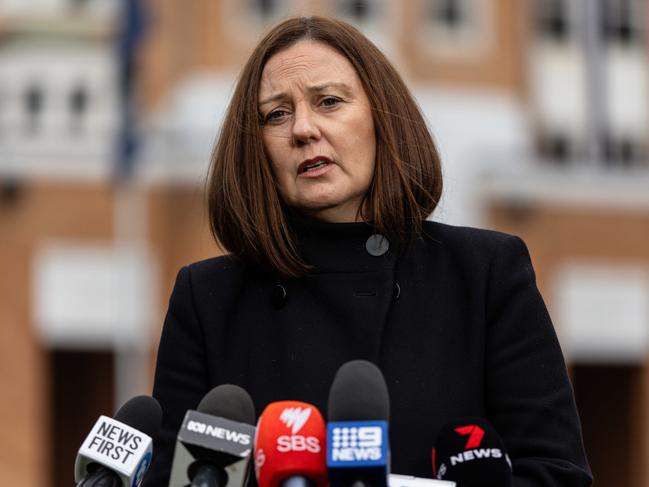
“The digital age means offenders can now breach orders without having to leave their house,” they said.
The spokesperson said specialised family violence detectives identified breaches through active monitoring and targeting of known and emerging offenders.
“We conduct regular patrols and proactively knock on the doors of perpetrators across the state every single day to bring them before the courts.
“We also conduct regular operations to proactively target and apprehend perpetrators to ensure the safety of victim-survivors.”
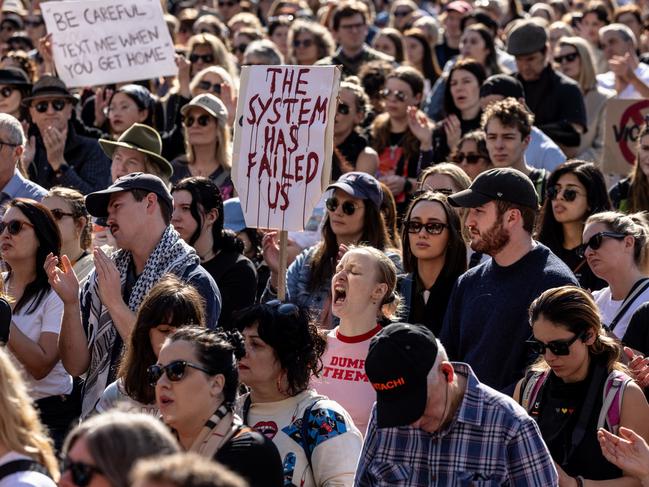
Women’s Community Shelter chief executive Annabelle Daniels said responding “quickly and decisively” to breaches of orders was a critical part of preventing violence.
“People using violence will often ‘test the waters’ with intervention orders to see if anyone will hold them accountable for overstepping the line they’ve been set,” she said.
“If they are not held accountable, it can embolden them to take further steps. No breach should ever be considered ‘low level’ or of little consequence.”

The organisation is currently working with the local community on the Mornington Peninsula to establish a new shelter for women and children experiencing homelessness caused by domestic and family violence.
“The community has seen a significant growth in demand, and action is required urgently,” Ms Daniels said.
“We know this is the tip of the iceberg – and we hope to do more.”
Sport and Life Training chief executive Dave Burt said more women needed to hold positions in community organisations, like sporting clubs, to help create change.
“Women need to be listened to. They need to feel safe. They need to be given positions of influence,” he said.
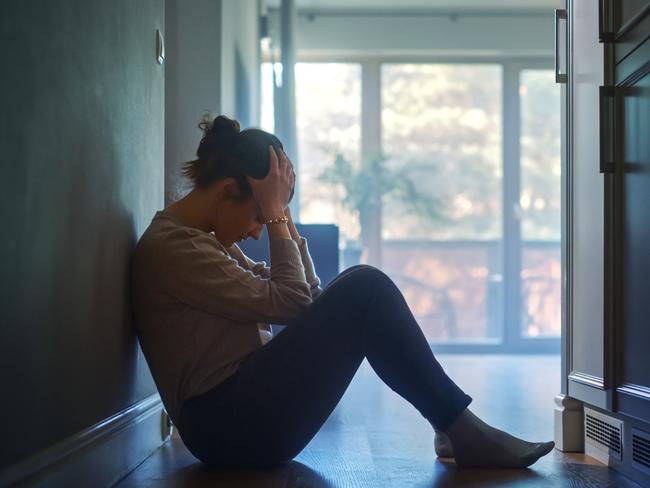
“Club members need to understand the link between language, casual disrespect and inequality with violence towards women.
“When the majority of men are clear that they are part of the solution, they will step up and play their role.”
A White Ribbon spokesperson said all males needed to challenge harmful attitudes and beliefs, and speak out against the violence, coercion and threatening behaviours of other men.
“As a nation, we need to be doing more to stop women being murdered, and this won’t happen without greater investment across all areas of the family domestic violence and abuse sector, including primary prevention strategies and education campaigns to stop violence before it starts,” they said.
The chief justice of the Federal Circuit and Family Court has called on governments to establish a national intervention order database.
William Alstergren AO said such a tool is “vitally important” and would help judges swiftly determine the risk levels of a victim of family violence.
“We’ve got to make sure we can get all the information ... as quickly as we can so we can appropriately triage those cases and assign a level of risk which is appropriate to them,” he said.
The plea came as Jacinta Allan conceded that governments across the country need to do better at building a national response to tackle the family violence crisis.
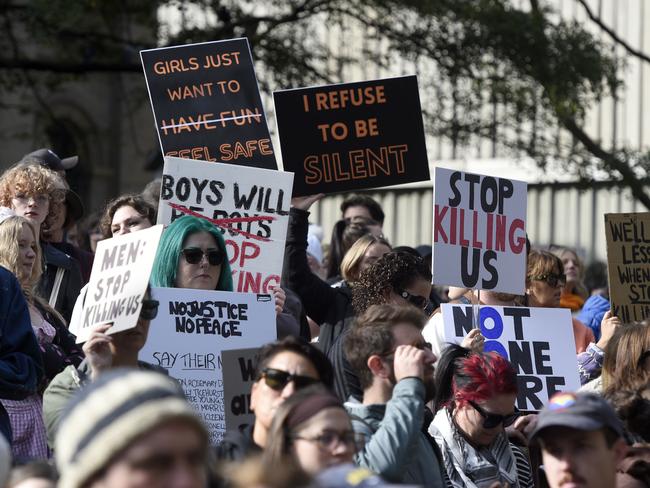
The Premier, speaking at the ABC’s Violence Against Women: Finding the Solutions forum on Wednesday night, said her government is in the process of trying to work out what immediate initiatives can be implemented.
Ms Allan said preventing violence through cultural change is the key issue in solving the crisis, but admitted that states needed to unite.
Victoria Police chief commissioner Shane Patton, who also attended the forum, said police currently have the adequate resources to tackle the scourge.
“But it takes up a heck of a lot of our time,” he said.
“There is no single silver bullet here.”
Violet Co Legal & Consulting founder Karen Iles, who represents Aboriginal victims of family violence, said one of the most pressing solutions is to change the public’s perception of the police force.
Ms Iles said a whopping 80 per cent of women experiencing family violence “don’t go anywhere near a police station” out of fear.
“My advice to my clients who are Aboriginal is take a lawyer because you will be misidentified yourself as a perpetrator and you will probably end up getting charged,” she said.
“There is a massive issue with police.”
The forum also heard from Safe Steps CEO Chelsea Tobin, who revealed 200 victims of violence are currently being housed in motels.
Social worker Christine Craik said despite 227 recommendations being implemented since the state based Royal Commission into family violence, “not a lot on the ground has changed”.
Ms Craik said she can’t understand why it’s not a condition of every intervention order for men to attend and complete a behavioural change program.
--


